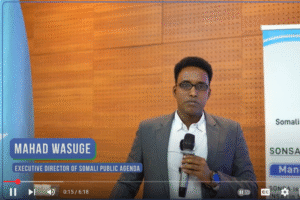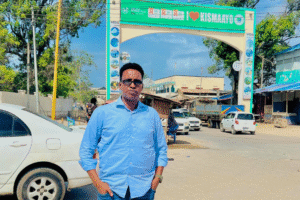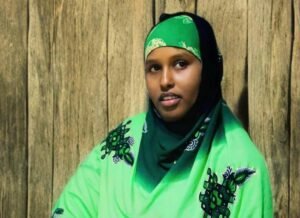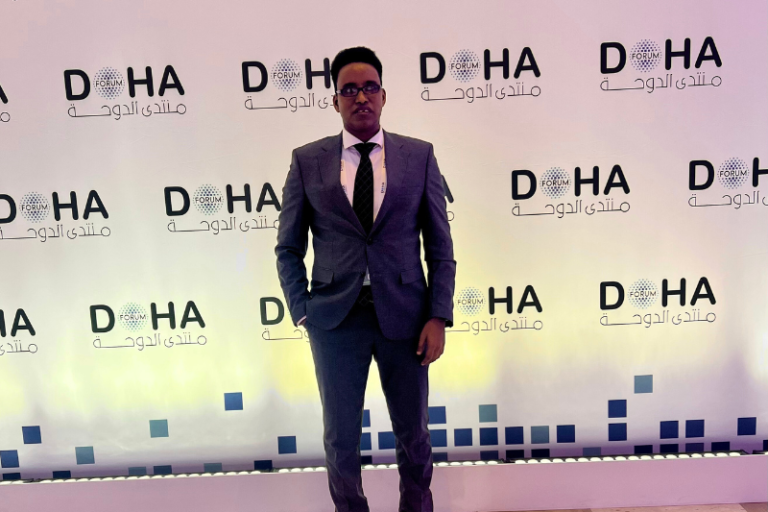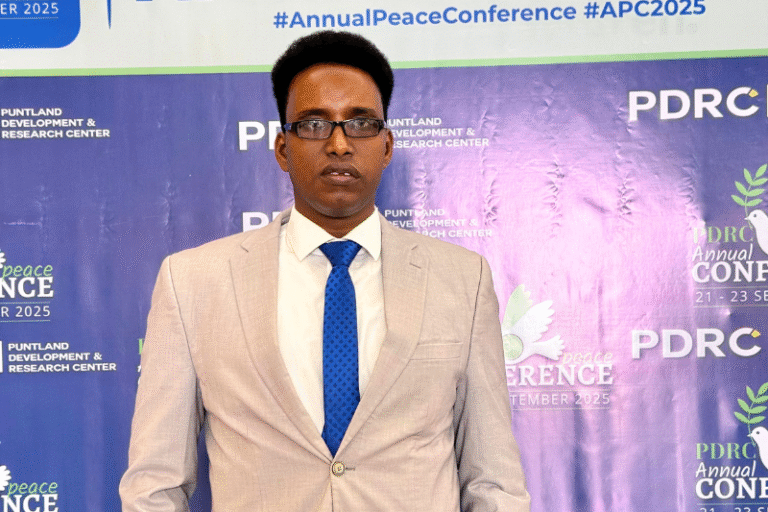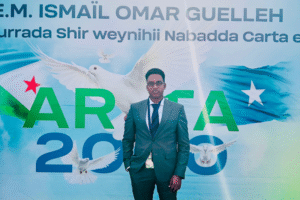
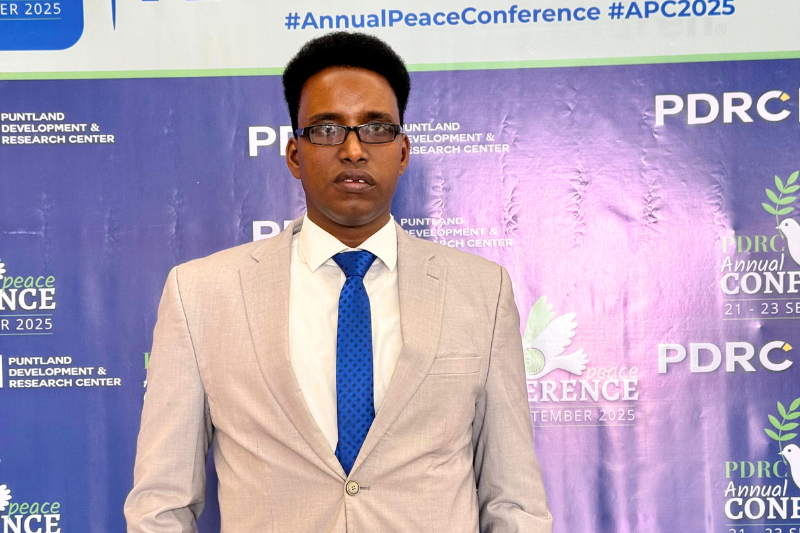
I recently traveled to Garowe to attend the third Annual Peace Conference, held from 21–23 September 2025. The conference, convened annually by the Puntland Development and Research Center (PDRC), often begins on 21 September—the International Day of Peace—and focuses on peace-related issues. This year’s theme was “Climate, Peace, and Security: Building a Peaceful and Resilient Future.”
I arrived at Garowe’s Gen. Mohamed Abshir Airport on a sunny day, 20 September 2025, along with other participants from Mogadishu. The city was hot, and the impact of climate change was instantly evident. The airport and the PDRC team are now very familiar to me, as Somali Public Agenda (SPA) and PDRC have recently collaborated on studies and roundtable discussions, and I have traveled to Garowe several times before.
After a few hours of rest, we were invited to a welcoming dinner at the PDRC office. Puntland ministers, politicians, intellectuals based in Puntland, and conference participants gathered and had an opportunity to get to know one another. Some attendees reminisced about their first visit to Garowe, while others reflected on how small the town was just over a decade ago and the rapid urbanization it has undergone since then. Guests appreciated the city’s urban governance, tarmac roads throughout the town, and Garowe’s growing role in Somalia’s key political and governance developments.

I moderated the first panel discussion on The Environmental, Climate Change, Peace, and Security Nexus, which explored the question: Can Somalia address the growing environmental, climate, peace, and security challenges with the current governance and institutional arrangements? Panelists included Samira Gaid, Head of Research and Policy at Balqiis Insights; Dr. Ahmed Ali, Founder of Gedo University; Prof. Hussein Iman, Founder of Ammana Consulting; and Mohamed Sharif, Director General of SoRLARI. It was an hour-long discussion on how current governance and institutional arrangements affect climate change responses.

The key highlights from the panel were the lack of coordination among federal, state, and local government institutions; the absence of decentralization in climate change responses; the limited implementation capacity; and the inability to distribute climate investments (if and when they come) equitably. These were identified as the core governance challenges. Climate change is already affecting people’s lives and livelihoods, and my concern is that it might become the next “hot cake” for the misappropriation of critical investments meant to save lives. It was evident that the bad governance trap remains the most critical challenge, as echoed by many conference participants. How to address it is the billion-dollar question.

What I liked most about the conference was how local voices were amplified. People affected by climate change were invited to share their personal experiences in a room where policymakers and donors were present. Several panels were dedicated to hearing the indigenous knowledge and expertise of local communities—something often missing in most conferences held in Somalia, where the most important stakeholders are usually on the menu rather than in the room. Huge credit goes to PDRC for ensuring this.
I had the opportunity to meet several scholars and engage in thought-provoking discussions. Breakfast often served as a space for deeper exchanges among participants. One morning, Hussein Mohamed Yusuf and I had an engaging conversation over breakfast with Dr. Ahmed Ali Malaaq, a researcher, lecturer, and post-conflict state- and peace-building expert who had also been on the panel I moderated. We discussed leadership qualities extensively. I had to interrupt him to share my own perspective as he had so much to say about the subject. It was an insightful conversation about integrity, capacity, and knowledge in leadership. My view was that integrity should be the foremost criterion for leadership selection—a point Hussein Yusuf agreed with. We eventually reached a consensus after nearly an hour of discussion. The question of citizenship also came up in several informal conversations during the conference.
After the conference ended, I had a day to explore the town before returning to Mogadishu. My friend Feysal Qaran, former chair of the Puntland Non-State Actors Association (PUNSAA), invited me to lunch outside the town. After lunch, we discussed various topics, the main one being corruption in the public sector. I mentioned the concept of “positive corruption” (a term used in some literature, though I personally believe there is nothing positive about corruption), referring to local politicians who invest in buildings and businesses with misappropriated funds. Some guests shared examples of diaspora and local politicians engaging in such practices, noting that local politicians often spend the money they misappropriate within the country. The key takeaway from the discussion was that the normalization of corruption is morally damaging to the youth and to anyone who still hopes to build effective public institutions.
We concluded the trip with a dinner at PDRC, reflecting on the conference and sharing thoughts on what needs to be done collectively for a better Somalia. I took the opportunity to emphasize the importance of establishing civil society organizations that promote transparency and fight corruption—and the need for Somalis to find something greater than clan affiliations to unite us and give us a collective identity.
It was a wonderful five-day experience. My sincere thanks go to PDRC for making it possible.
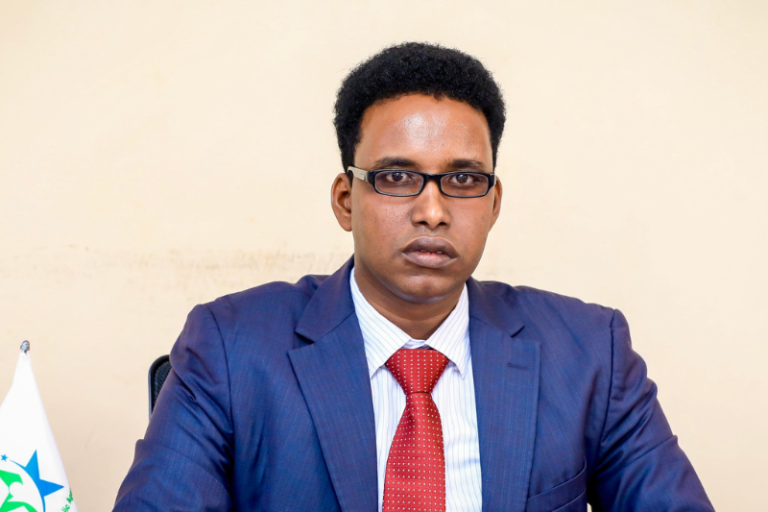
Is a researcher, teacher, podcaster and blogger. His work over the last decade has focused on teaching and researching governance, justice and social services in Somalia.


